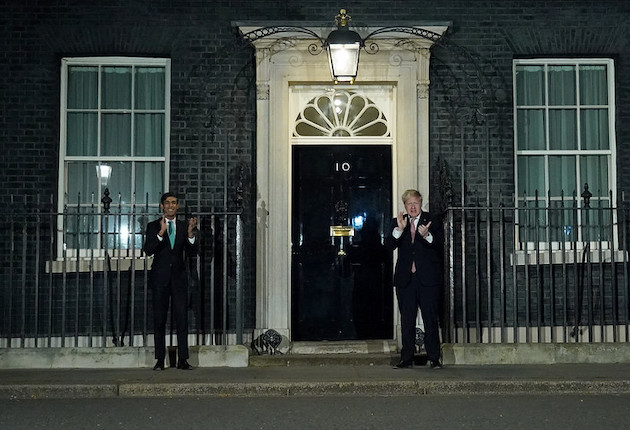UK government policies continue to entrench poverty and inflict unnecessary misery on millions of people, says Just Fair director Jess McQuail and UN’s Olivier De Schutter.
UK government policies continue to entrench poverty and inflict unnecessary misery on millions of people, says Just Fair director Jess McQuail and UN’s Olivier De Schutter.
The situations described above remain all too familiar across the UK.
Despite being one of the richest countries in the world, a fifth of the UK population lives in poverty. This summer, Joseph Rowntree Foundation reported that 5.5 million households had cut down on or skipped meals. That 2.6 million households had borrowed at sky-high rates from loan sharks, payday lenders or pawnshops. That around 9 in 10 low-income households on Universal Credit were going without the essentials of everyday life – little surprise given that the basic rate of benefits remains close to destitution levels, despite soaring living costs.
Speaking at the end of his trip, Alston lamented that successive UK governments had presided over the “systematic dismantling” of social security in the UK, calling this not just a disgrace, but “a social calamity and economic disaster, all rolled into one”. In his subsequent UN report, he called austerity cuts to the welfare system ‘ideological’ and ‘tragic’.
Rather than taking action, the government’s reaction to the findings was to deny, deflect and complain. Five years later, it seems the government remains in denial about the devastating impacts of austerity. Prime minister Rishi Sunak’s one mention of the social security system in his recent conference speech promised a ‘crackdown’ on those deemed ‘not fit to work’. That’s the people who are disabled, sick with long-term illnesses, and suffering from severe mental health crises. Nor is it true that creating jobs is a magic wand that will solve all problems. In 2020/21, 11% of all working adults lived in a household in poverty: as precarious forms of work become more common, having a job no longer protects from poverty, especially if you work part-time.
- Austerity doesn’t add up and hits those in need hardest
- UK poverty: The facts, effects and solutions in the cost of living crisis
Public services remain at crisis levels. According to the Local Government Association councils face a funding gap of almost £3 billion over the next two years – and that’s just to keep services at current levels, despite adult and children’s social care being stretched to breaking point. Mounting evidence that shows investing in social protection is a saving, not a cost, evidently continues to fall on deaf ears.
The truth is that there has been a continued downward trajectory for the UK since 2018, and unless the government takes serious and targeted action deep inequality risks becoming hardwired in as our ‘new normal’.
The government has agreed to respect, protect and fulfil economic, social and cultural rights. These everyday rights guarantee a decent job and home, enough to eat, clothes to wear, a healthy environment, the chance to learn, and a safety net when we most need it: the type of things you would expect to be a given for people living in twenty-first century Britain.
UK poverty statistics show the government is spectacularly failing to live up to this promise. There is currently no legal way to hold them to account domestically when these rights are violated, but this must change. The government must follow the growing international norm and bring economic, social and cultural rights into domestic legislation to embed a lasting solution to poverty, inequality and injustice.
Five years on, it bears repeating: UK government policies continue to entrench poverty and inflict unnecessary misery on millions of people. A new vision guided by human rights is urgently needed.
Jess McQuail is director of Just Fair. Olivier De Schutter is the UN’s Special Rapporteur on extreme poverty and human rights.
Original source: The Big Issue
Image credit: Some rights reserved by UK Prime Minister, flickr creative commons

